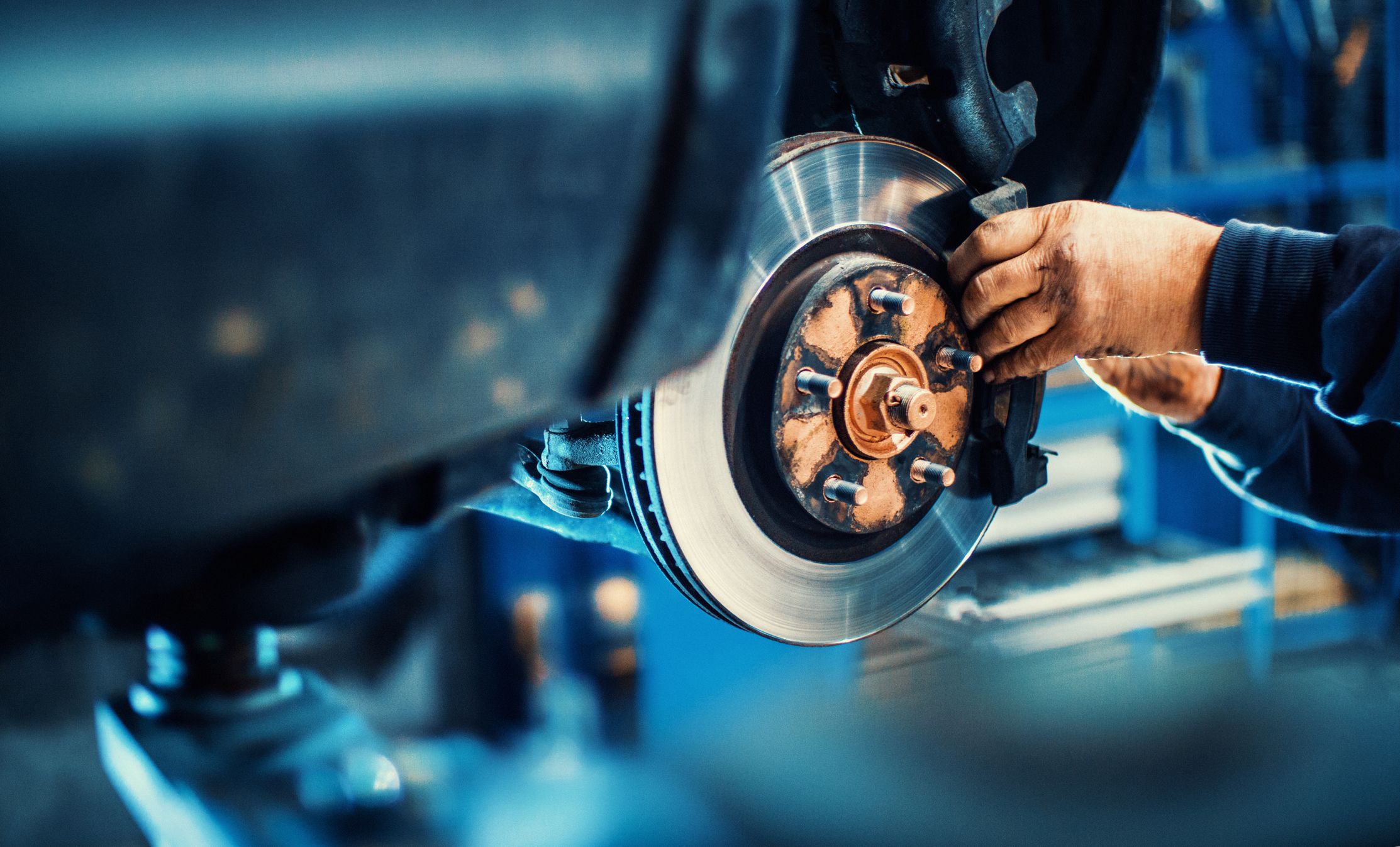
Every time you drive, you rely on the brakes of your car as a vital safety feature. On the road, you must be able to stop and slow down your car. But for many drivers, the braking system is frequently ignored until it is absolutely necessary.
Your brake system will remain in good working order if you are aware of how your brakes operate, keep them maintained properly, and are aware of any warning indications by proper Brake Repair Longton. so preserving the safety of you, your passengers, and other motorists on the road.
What Your Car’s Brakes Do?
When you pause to consider it, your brake system performs some truly amazing tasks. By pressing the brake pedal, your brakes can bring your massive, 1.5-ton (or more) car to a complete halt.
A stop is the result of several quick events. When you press down on the brake pedal, a plunger get forced up against the master cylinder. Through the lines and hoses, the hydraulic brake fluid is then delivered into the brake callipers of each wheel unit. This hydraulic fluid amplifies your foot pressure, helping you to slow down and stop your car.
After that, the brake callipers apply pressure, pressing the brake pads against the brake rotors (or discs).
In order to properly slow down and stop the rotating rotors as needed, your brake pads, which feature a friction material, absorb the pressure and heat of this exchange. Various pieces of this friction material worn down every time the brakes get activated. This is why you should frequently check your brake pads and replace them as necessary. Your brakes must be in proper working order for all of these to function as they should.
How can you determine when your brakes aren’t performing as they should and whether you need brake repair? There are a few red flags you should watch out for.
The Symptoms Of Brake Trouble
Loud screeching coming from the wheels is one of the first symptoms that frequently comes to mind when people think about faulty brakes. However, there are a number of additional signs to watch out for that can point to the need for brake maintenance.
Slower or ineffective braking
The size of your car, the quality of its tyres, the surface of the road, how hard you press the brake pedal, and other factors can affect how quickly your car stops. But this is a crucial sign that your brakes need repairing if you discover that your car is not slowing down or stopping as effectively as it used to.
Strange Sounds
As was already indicated, strange noises when braking can mean that something needs fixing. The wear indicators near the brake pads frequently make a squeaking or screeching noise. This sound is usually produced when they come into touch with the brake disc due to excessive wear. Bring your car in right now to have the brakes checked.
Damaged brake pads
The above-mentioned delayed braking reaction time is frequently caused by brake pads that are excessively worn. You may be able to see the brake pad between the calliper and the brake rotor by looking through the spokes of your wheels, depending on their configuration. Check the pad’s thickness visually. Typically, 14 of an inch thick is the ideal thickness.
Dragging one side
As you drive or brake, your car may be tugging to the right or left, and you may be wondering what could be the cause. The most common causes of tugging while driving are poor alignment, worn or uneven tyres, or suspension issues. If it only occurs when you try to slow down or stop the automobile, there may be a problem with your brake system. The issue might be:
Uneven brake pads: The wheels gets pulled to one side because the pressure on the brakes is uneven.
Stuck calliper: The car will pull in the direction of the side where the stuck calliper is putting too much pressure on the rotor.
Broken brake hose: The braking fluid’s flow and pressure gets restricted, which causes the callipers to respond unevenly.
Strange Vibrations
When you apply the brakes normally, some brake problems may cause your steering wheel or brake pedal to vibrate or pulse (versus emergency). Warped brake rotors are frequently to blame for this. Your vehicle’s anti-lock brakes will apply a series of pulsing fast grabs on the rotors in an emergency situation that demands instantaneous stopping force to immediately slow down the vehicle.
Long-term, intense stress can produce enough friction to damage the brake rotors of your car.
The rotors will become extremely hot and deform as a result of frequent braking when pulling heavy loads, steep downhill slopes, or mountainside descents. In this situation, the rotors would either need replacing or, if possible, resurfaced.
Bring your car to the closest Car Repair Longton for brake inspection if any of the above-mentioned warning flags are present on it. We can identify the specific problem and decide what brake service you might require.
